
Enchanting Sint-Anna: Bruges' Hidden Gem
Nestled in the historical city of Bruges, Sint-Anna offers a serene escape from the bustling tourist hotspots. This charming neighbourhood is steeped in local history and boasts an array of picturesque streets, medieval architecture, and tranquil canals. Here, you can immerse yourself in the authentic spirit of Bruges, away from the throngs of tourists. Start your exploration with a visit to the Sint-Annakerk, a beautiful church that dates back to the 17th century. Its stunning Baroque interior and serene atmosphere provide a peaceful respite. Nearby, you'll find the Lace Center, where you can learn about the intricate art of lace-making, a craft that has been a part of Bruges' heritage for centuries. Take a leisurely stroll through the quiet streets and discover hidden gems like the Guido Gezelle Museum, dedicated to the famous Flemish poet. The neighbourhood is also home to several quaint cafes and traditional Belgian pubs, where you can indulge in local delicacies and sample some of Belgium's finest beers. Don't miss the chance to visit the nearby windmills along the city's outer canals, offering a glimpse into Bruges' picturesque countryside.
Local tips in Sint-Anna
- Visit early in the morning or late in the afternoon to avoid crowds and enjoy a more peaceful experience.
- Wear comfortable walking shoes as the cobblestone streets can be uneven.
- Take a guided tour at the Lace Center to fully appreciate the craftsmanship and history of lace-making.
- Stop by a local cafe to try Belgian waffles and hot chocolate, especially in the cooler months.
- Bring a camera or smartphone for the many photo opportunities, especially around the canals and windmills.
Enchanting Sint-Anna: Bruges' Hidden Gem
Nestled in the historical city of Bruges, Sint-Anna offers a serene escape from the bustling tourist hotspots. This charming neighbourhood is steeped in local history and boasts an array of picturesque streets, medieval architecture, and tranquil canals. Here, you can immerse yourself in the authentic spirit of Bruges, away from the throngs of tourists. Start your exploration with a visit to the Sint-Annakerk, a beautiful church that dates back to the 17th century. Its stunning Baroque interior and serene atmosphere provide a peaceful respite. Nearby, you'll find the Lace Center, where you can learn about the intricate art of lace-making, a craft that has been a part of Bruges' heritage for centuries. Take a leisurely stroll through the quiet streets and discover hidden gems like the Guido Gezelle Museum, dedicated to the famous Flemish poet. The neighbourhood is also home to several quaint cafes and traditional Belgian pubs, where you can indulge in local delicacies and sample some of Belgium's finest beers. Don't miss the chance to visit the nearby windmills along the city's outer canals, offering a glimpse into Bruges' picturesque countryside.
Iconic landmarks you can’t miss
Belfry of Bruges
Climb the iconic Belfry of Bruges for panoramic views, a glimpse into history, and the enchanting sounds of its 47-bell carillon.
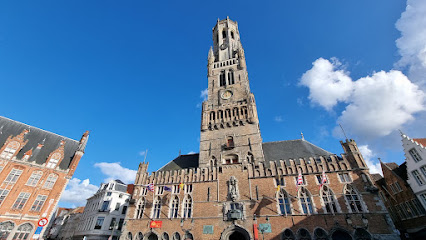
Basilica of the Holy Blood
Explore a sacred site in Bruges, where Romanesque and Gothic architecture house a venerated relic of the Holy Blood.
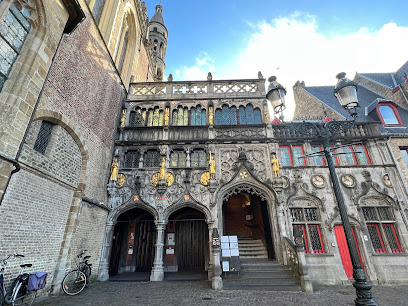
De Burg
Experience the rich history and stunning architecture of De Burg, a must-visit landmark in the heart of Bruges, Belgium.
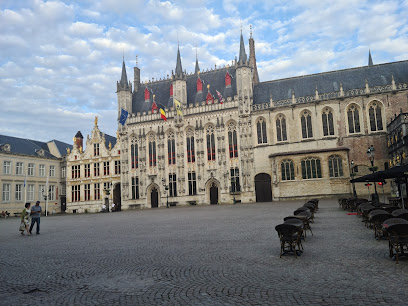
Kruispoort gate
Explore the enchanting Kruispoort Gate in Bruges, a historical landmark that reflects the city's rich medieval heritage and stunning architecture.
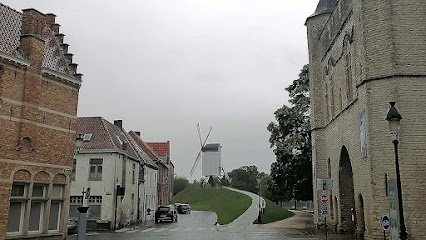
Sint-Janshuismolen
Explore the historic Sint-Janshuismolen in Bruges, a captivating windmill and museum showcasing the art of milling and breathtaking views.
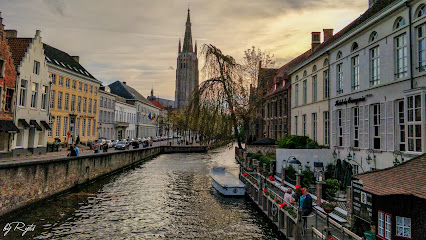
Sint-Annakerk
Experience the architectural beauty and peaceful ambiance of Sint-Annakerk, a stunning Catholic church in the heart of Bruges, Belgium.
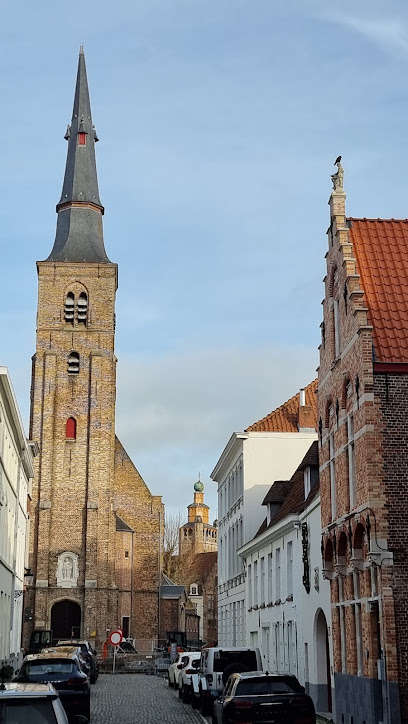
Langerei
Experience the serene beauty of Bruges along the Langerei canal, where history and picturesque scenery converge for an unforgettable escape.
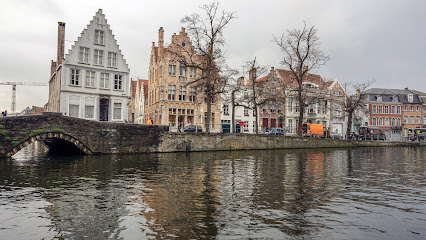
Groenerei
Experience the enchanting Groenerei canal in Bruges: medieval beauty, serene tranquility, and picture-perfect views await!
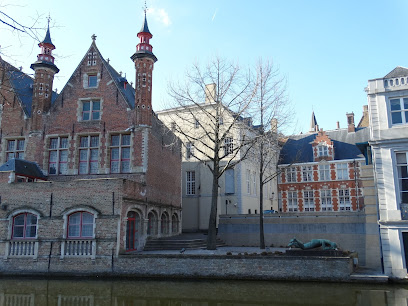
Sint-Jansplein
Discover Sint-Jansplein in Bruges: a picturesque square surrounded by historical architecture, vibrant culture, and serene beauty.
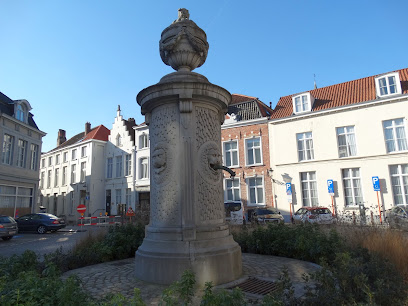
Sint-Donaas ruïnes
Discover the hidden ruins of Bruges' most important cathedral, unearthed beneath Burg Square and the Crowne Plaza Hotel.
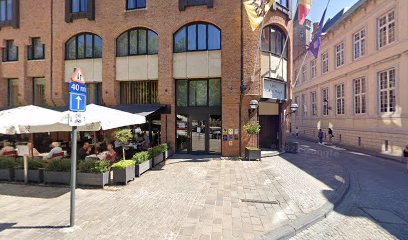
Unmissable attractions to see
Church of Our Lady
Explore the breathtaking Church of Our Lady in Bruges, a Gothic masterpiece showcasing rich art and history in the heart of the city.
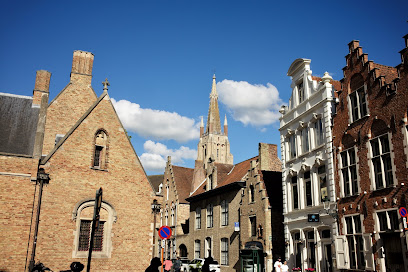
Choco-Story, Chocolate Museum
Discover the rich history and delightful flavors of chocolate at Bruges' Choco-Story, a must-visit museum for every sweet tooth.
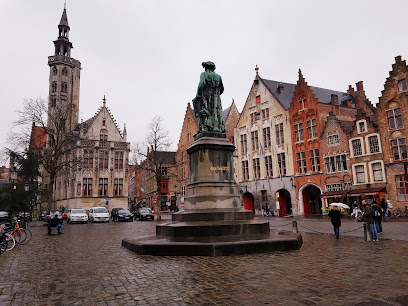
Basilica of the Holy Blood
Discover the Basilica of the Holy Blood in Bruges, a stunning Catholic church housing a revered relic with rich history and breathtaking architecture.
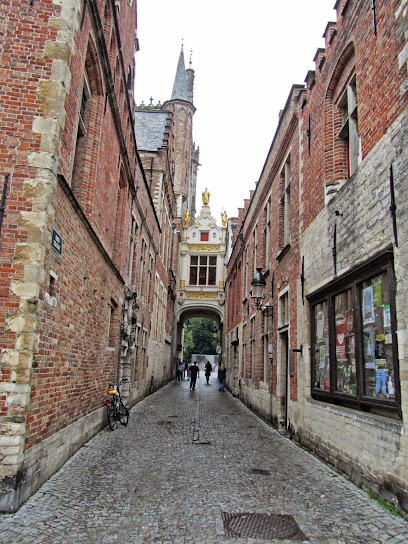
Historium Bruges
Discover the medieval magic of Bruges at Historium, where history, art, and technology intertwine to create an unforgettable experience.

Groeninge Museum
Explore six centuries of Belgian art, from Flemish Primitives to modern masterpieces, in the heart of Bruges at the Groeninge Museum.
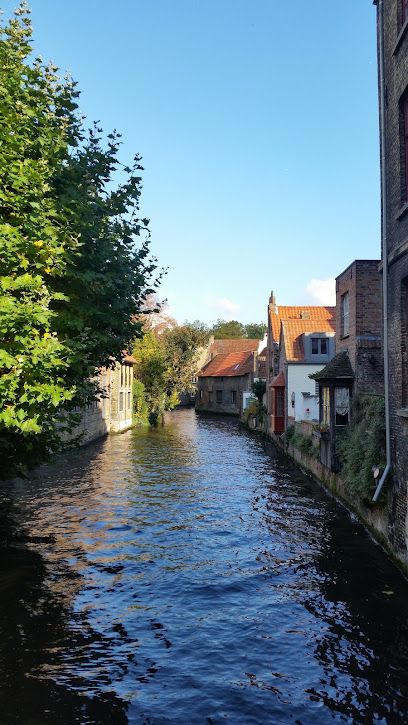
Rosary Quay
Experience the charm of Bruges at Rosary Quay, where medieval architecture meets serene canals, creating the perfect backdrop for unforgettable memories.
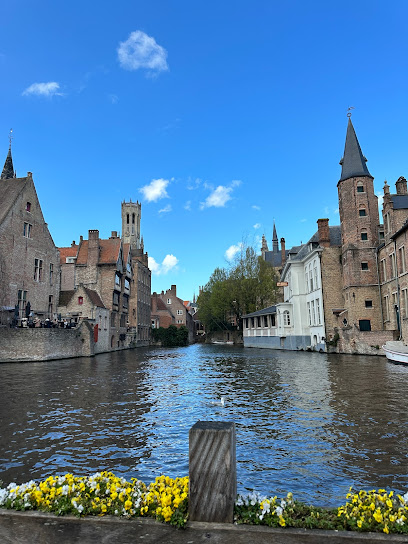
Ezelpoort
Discover Ezelpoort, a historic gate in Bruges, Belgium, offering a glimpse into the city's medieval heritage amid picturesque landscapes.
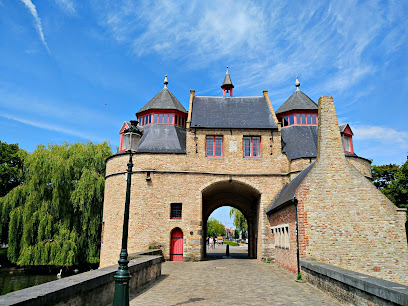
Spiegelrei
Discover the charming Spiegelrei canal in Bruges, a stunning blend of medieval architecture and picturesque waterways perfect for exploring.
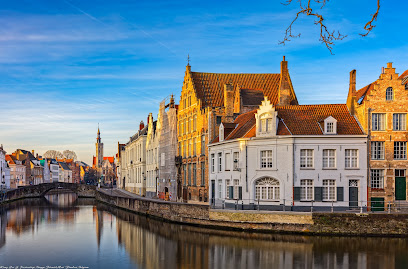
Essential places to dine
Belgian Pigeon House
Experience authentic Belgian cuisine in Bruges at the Belgian Pigeon House – where tradition meets taste.
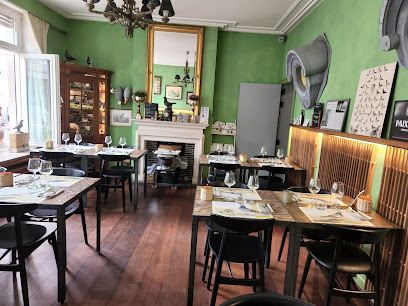
De Verloren Hoek
Experience the best of Belgian cuisine at De Verloren Hoek in Bruges - where local flavors meet international culinary artistry.
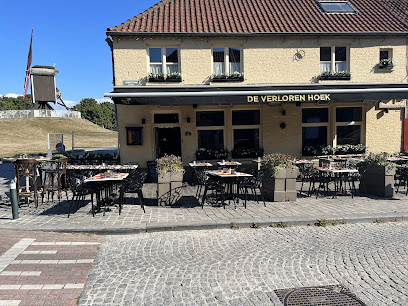
Restaurant 't Gezelleke
Experience authentic Belgian cuisine at Restaurant 't Gezelleke in Bruges, where every dish tells a story of local tradition and flavor.
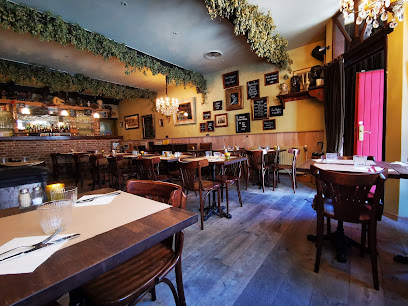
Franco Belge Restaurant
Savor exquisite Belgian and French cuisine at Franco Belge Restaurant in Bruges - where culinary artistry meets elegance.
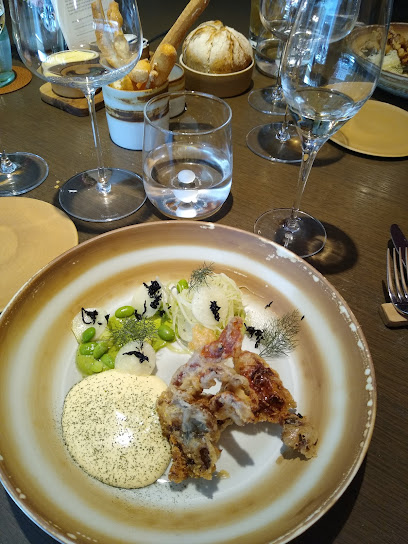
Rock Fort
Discover exquisite Belgian cuisine at Rock Fort, where tradition meets innovation in the heart of Bruges.
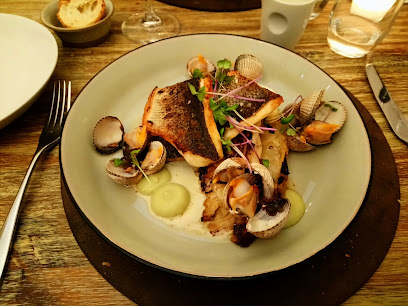
Sans Cravate
Experience the finest Belgian cuisine at Sans Cravate in Bruges—where gourmet meets comfort in a charming setting.
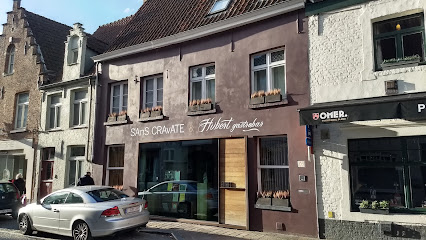
Zet'joe
Experience culinary excellence at Zet'joe – where Belgian tradition meets modern fine dining in the heart of Bruges.
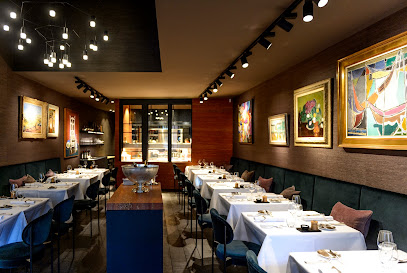
Sint-Anna
Experience authentic Belgian flavors at Sint-Anna Bistro in Bruges - your go-to spot for breakfast, lunch, and coffee!
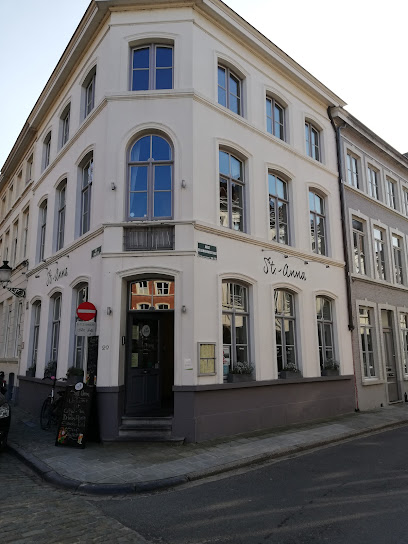
't Huiskombuis
Discover 't Huiskombuis in Bruges - where South African flavors meet Belgian charm in a cozy dining experience.
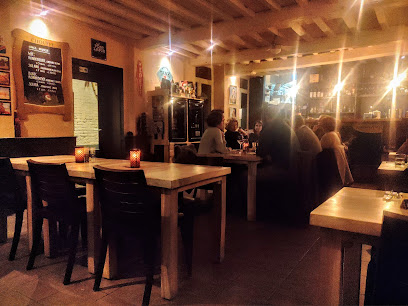
Leuk terrasje
Experience authentic Belgian cuisine at Leuk Terrasje, where every dish tells a story amidst the enchanting streets of Bruges.
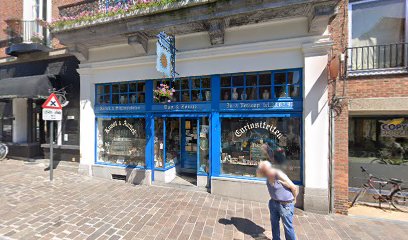
Markets, malls and hidden boutiques
Olleke, Wizarding Shop Brugge
Discover the enchanting world of Olleke, a magical gift shop in Brugge offering unique collectibles and toys for all ages.
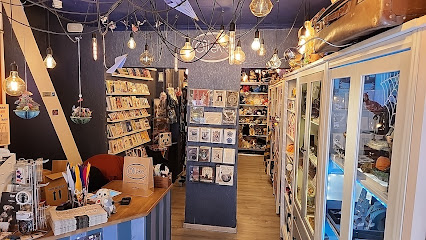
lilola
Explore Lilola in Bruges: Your go-to boutique for chic women's fashion, unique handbags, and stunning accessories.
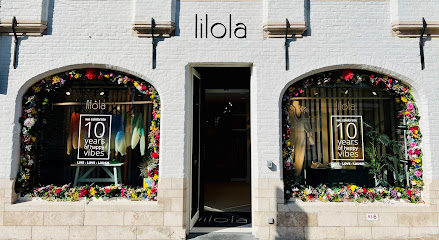
'T Apostelientje
Explore the enchanting antique treasures at 'T Apostelientje in Bruges, where history and charm come alive in every unique piece.
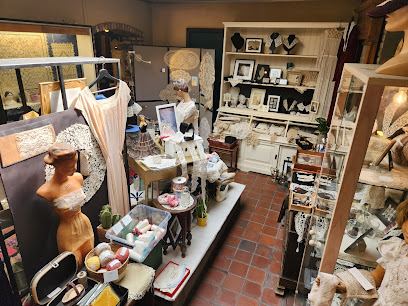
Firma Pickery
Explore Firma Pickery, a delightful gift shop in Bruges offering unique fashion accessories, home goods, and memorable souvenirs for every traveler.
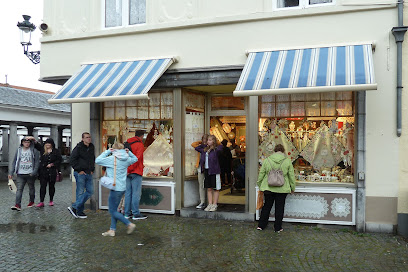
Lieve Cadeaus (Lieve Pickery)
Explore Lieve Cadeaus in Bruges for unique handcrafted gifts, jewelry, and lace that celebrate local artistry and traditions.
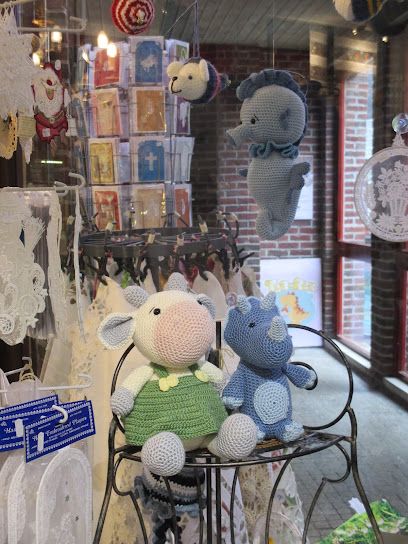
Frida Simone
Discover unique vintage clothing and accessories at Frida Simone, a must-visit vintage shop in the heart of Bruges, Belgium.
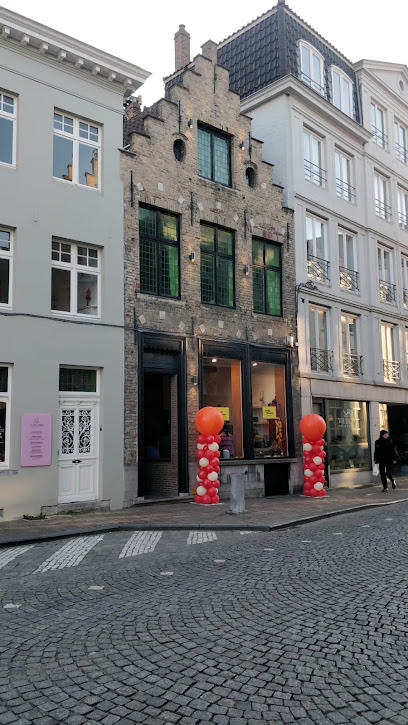
Dag & Zonne
Explore Dag & Zonne in Bruges, where history and charm come alive through an exquisite collection of antiques and unique finds.
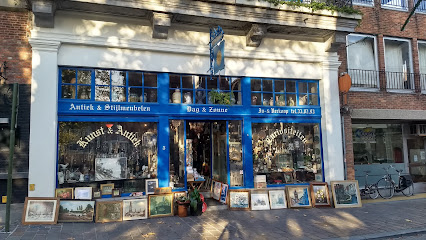
Shop with purpose.
Explore Bruges' finest handbags shop, where style meets purpose in a charming boutique atmosphere.
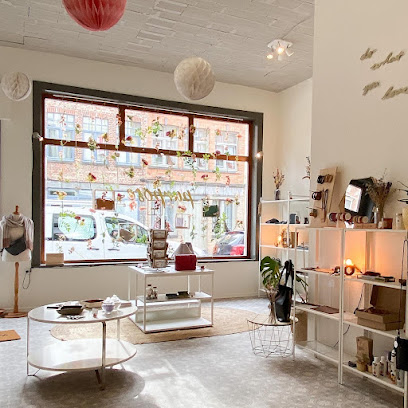
Mardi Local Shop
Discover unique local crafts and souvenirs at Mardi Local Shop in the heart of Bruges, a charming destination for every traveler.
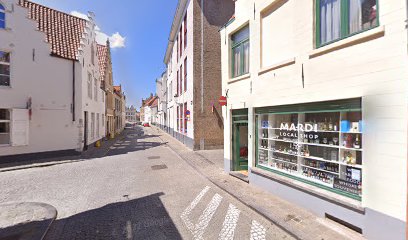
Sous Vide Shop
Explore the Sous Vide Shop in Bruges for an exceptional culinary experience, offering a wide range of sous vide equipment and gourmet ingredients.
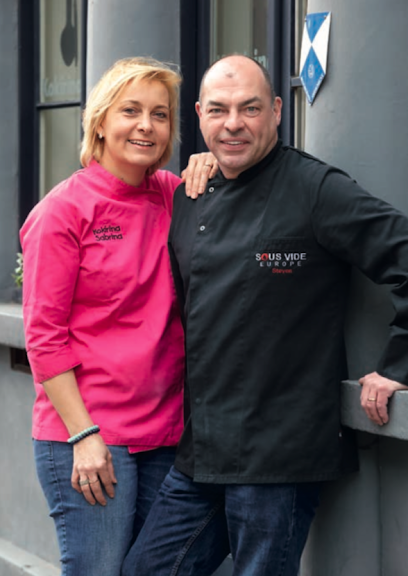
Essential bars & hidden hideouts
Delaney's Irish Pub
Discover the heart of Ireland at Delaney's Irish Pub in Bruges, featuring lively ambiance, traditional dishes, and a vast selection of beers.
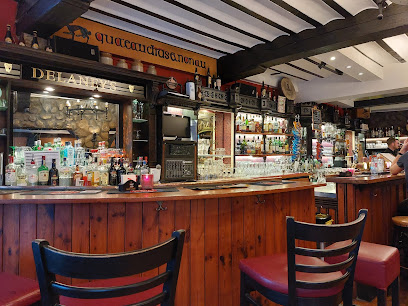
Cafe Rose Red
Discover Café Rose Red in Bruges - a cozy bar and restaurant serving exquisite Belgian cuisine and a vast selection of local beers in a charming atmosphere.
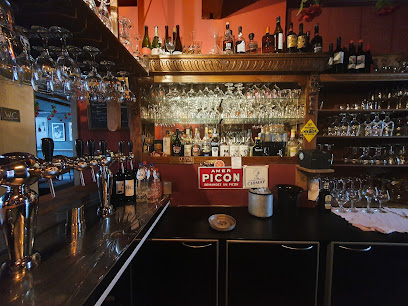
Bar Des Amis
Experience the charm of Bruges at Bar Des Amis, where local beers and a cozy ambiance await you in the heart of the city.
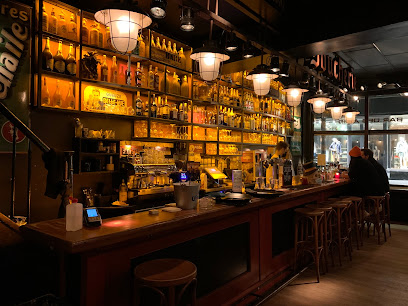
Groot Vlaenderen
Discover the vibrant cocktail scene at Groot Vlaenderen in Bruges, where classic mixology meets local flavors in a charming setting.
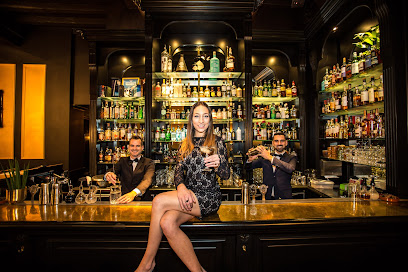
Bauhaus Bar
Discover the vibrant Bauhaus Bar in Bruges, a perfect blend of pub culture and sports excitement with a diverse beer selection.
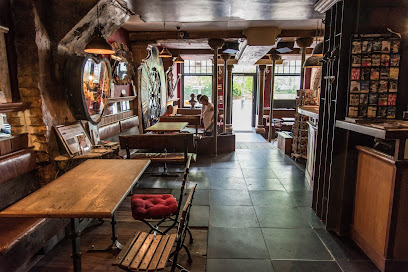
De Kelk
Discover Bruges' vibrant nightlife at De Kelk, a live music bar offering great drinks and unforgettable performances in a cozy atmosphere.
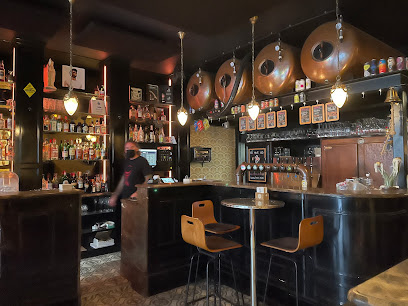
Bar Ran
Discover Bar Ran in Bruges: a cocktail haven offering innovative drinks, a cozy atmosphere, and a taste of vibrant nightlife.
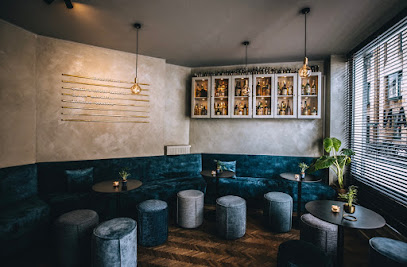
Retsins Lucifernum
Discover the charm of Retsins Lucifernum, a cozy bar in Bruges offering a unique ambiance and delightful local beverages to unwind and relax.
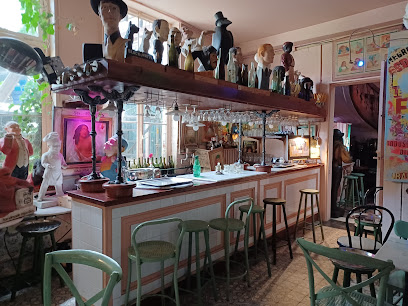
In De Reisduif
Discover the cozy atmosphere and extensive beer selection at In De Reisduif, a charming bar in the heart of Bruges.
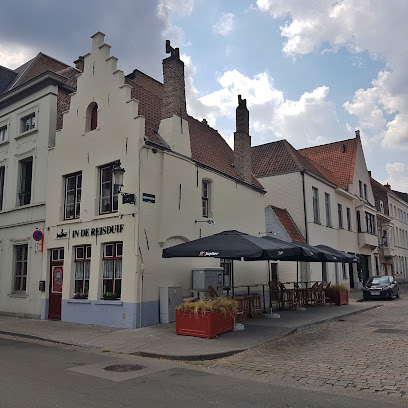
barazar
Experience the vibrant atmosphere and exquisite cocktails at Barazar, the perfect bar and cocktail lounge in the heart of Bruges, Belgium.
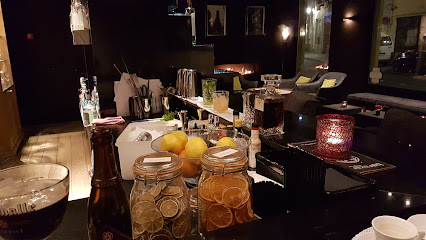
Local Phrases
-
- HelloHallo
[ha-lo] - GoodbyeTot ziens
[tot zeens] - YesJa
[ya] - NoNee
[nee] - Please/You're welcomeAlsjeblieft
[als-ye-bleeft] - Thank youDank je
[dank ye] - Excuse me/SorrySorry
[so-ree] - How are you?Hoe gaat het met je?
[hoo gaat het met ye] - Fine. And you?Goed. En met jou?
[hoed. en met yow] - Do you speak English?Spreek je Engels?
[sprek ye engels] - I don't understandIk begrijp het niet
[ik buh-greip het neet]
- HelloHallo
-
- I'd like to see the menu, pleaseIk zou graag de menukaart zien, alsjeblieft
[ik zou hrahg de me-nu-kart seen, als-ye-bleeft] - I don't eat meatIk eet geen vlees
[ik ayt kheen vleys] - Cheers!Proost!
[prohst] - I would like to pay, pleaseIk zou graag willen betalen, alsjeblieft
[ik zou hrahg vil-len buh-tah-len, als-ye-bleeft]
- I'd like to see the menu, pleaseIk zou graag de menukaart zien, alsjeblieft
-
- Help!Help!
[help] - Go away!Ga weg!
[ga wekh] - Call the Police!Bel de politie!
[bel de po-li-sie] - Call a doctor!Bel een dokter!
[bel ayn dok-ter] - I'm lostIk ben verdwaald
[ik ben fer-dwaald] - I'm illIk ben ziek
[ik ben zik]
- Help!Help!
-
- I'd like to buy...Ik zou graag kopen...
[ik zou hrahg koh-pen] - I'm just lookingIk kijk alleen maar
[ik kike a-layne mar] - How much is it?Hoeveel kost het?
[hoo-veel kost het] - That's too expensiveDat is te duur
[dat is tey dur] - Can you lower the price?Kunt u de prijs verlagen?
[kunt yu de preys ver-la-ghen]
- I'd like to buy...Ik zou graag kopen...
-
- What time is it?Hoe laat is het?
[hoo laht is het] - It's one o'clockHet is één uur
[het is ayn oor] - Half past (10)Half elf
[half elf] - MorningOchtend
[okhtend] - AfternoonMiddag
[mid-dahkh] - EveningAvond
[ah-vont] - YesterdayGisteren
[gih-ste-ren] - TodayVandaag
[vahn-dahkh] - TomorrowMorgen
[mor-khen] - 1Eén
[ayn] - 2Twee
[twey] - 3Drie
[dree] - 4Vier
[veer] - 5Vijf
[vai-f] - 6Zes
[zehs] - 7Zeven
[zeh-ven] - 8Acht
[ahkht] - 9Negen
[nay-khen] - 10Tien
[teen]
- What time is it?Hoe laat is het?
-
- Where's a/the...?Waar is een/de...?
[var is ayn/de] - What's the address?Wat is het adres?
[vat is het ah-dres] - Can you show me (on the map)?Kunt u me dat laten zien (op de kaart)?
[kunt yu me dat la-ten seen (op de kart)] - When's the next (bus)?Wanneer is de volgende (bus)?
[ven-nar is de vol-hen-de (bus)] - A ticket (to ....)Een kaartje (naar ....)
[ayn kart-ye (nar)]
- Where's a/the...?Waar is een/de...?
History of Sint-Anna
-
The Sint-Anna neighborhood, situated just south of Bruges' historical center, has its origins in the medieval period. The area was primarily agricultural until the 13th century when Bruges began to expand, influenced by its booming trade and the establishment of the cloth industry. Sint-Anna emerged as a residential area for craftsmen and laborers who supported the growing economy.
-
During the 14th and 15th centuries, Sint-Anna became pivotal in the trade networks of Bruges. The neighborhood's proximity to the canals allowed for easy transportation of goods, particularly textiles. The Sint-Anna canal, which flows through the neighborhood, facilitated trade and communication, contributing to the overall prosperity of Bruges as a leading commercial hub in medieval Europe.
-
The 19th century brought significant architectural changes to Sint-Anna, reflecting the broader developments in Bruges. As industrialization took hold, new buildings emerged, including residential houses and factories. The architectural style of this period displayed a blend of neo-Gothic and eclectic influences, which can still be observed in the neighborhood's structures today.
-
Like much of Bruges, Sint-Anna experienced the impacts of both World Wars. During World War I, the area was occupied by German forces, leading to significant alterations in the local economy and daily life. In World War II, Sint-Anna was affected by the Nazi occupation, which brought about further changes. Post-war reconstruction efforts led to modernization while preserving the historical character of the neighborhood.
-
Today, Sint-Anna retains its cultural significance within Bruges. The neighborhood is known for its vibrant community life, with local markets, artisanal shops, and cultural events that celebrate Bruges' heritage. The area continues to attract both residents and visitors who seek to experience the unique blend of history and modernity that Sint-Anna offers within the context of Bruges.
Sint-Anna Essentials
-
Sint-Anna is easily accessible from other neighbourhoods in Bruges. If you're arriving at Bruges Central Station, you can take a local bus (numbers 1 or 6) that will take you directly to Sint-Anna in about 15 minutes. Alternatively, you can walk to Sint-Anna from the city center, which is approximately a 25-minute stroll along picturesque canals.
-
Sint-Anna is a compact neighbourhood, making it perfect for exploration by foot or bicycle. Rental bikes are readily available throughout Bruges, and cycling is a popular way to navigate the city. Public buses are also an option, but walking or biking allows you to fully experience the charm of Sint-Anna's narrow streets and canals.
-
Sint-Anna is generally considered a safe neighbourhood for tourists; however, standard precautions should always be taken. Avoid poorly lit areas at night and keep your belongings secure, especially in crowded places. While there are no specific high-crime areas in Sint-Anna, it's advisable to stay vigilant in popular tourist spots where pickpocketing can occur.
-
In case of an emergency, dial 112 for immediate assistance in Belgium. Local hospitals and medical facilities are available within Bruges. It's advisable to have travel insurance that covers medical emergencies. For minor health issues, there are pharmacies in Sint-Anna where you can purchase over-the-counter medications.
-
Fashion: Do wear comfortable shoes suitable for walking, as the cobblestone streets can be uneven. Don't wear overly casual or beachwear in restaurants or shops. Religion: Do respect local customs, especially when visiting churches. Public Transport: Do be polite and offer your seat to the elderly. Don't engage in loud conversations on public transport. Greetings: Do greet locals with a friendly 'Hallo' or 'Goedemorgen'. Eating & Drinking: Do try local dishes, especially Flemish stew. Don't eat or drink while walking, as it is considered impolite.
-
To experience Sint-Anna like a local, visit the nearby green spaces such as Park Minnewater for a relaxing afternoon. Check out the local bakeries for authentic Belgian pastries and chocolates. Engage with local artisans who often sell handmade crafts and souvenirs. Don't miss the Sint-Anna church, which is less touristy but holds significant historical value. Also, try to attend a local event or festival if your visit coincides with one, as it offers a glimpse into the community's culture.
Nearby Cities to Sint-Anna
-
Things To Do in Zeebrugge
-
Things To Do in Blankenberge
-
Things To Do in Knokke-Heist
-
Things To Do in De Haan
-
Things To Do in Ostend
-
Things To Do in Ostend-Bruges International Airport
-
Things To Do in Nieuwpoort
-
Things To Do in Ghent
-
Things To Do in Kortrijk
-
Things To Do in Ypres
-
Things To Do in Aalst
-
Things To Do in Lille
-
Things To Do in Tournai
-
Things To Do in Antwerp
-
Things To Do in Brussels








